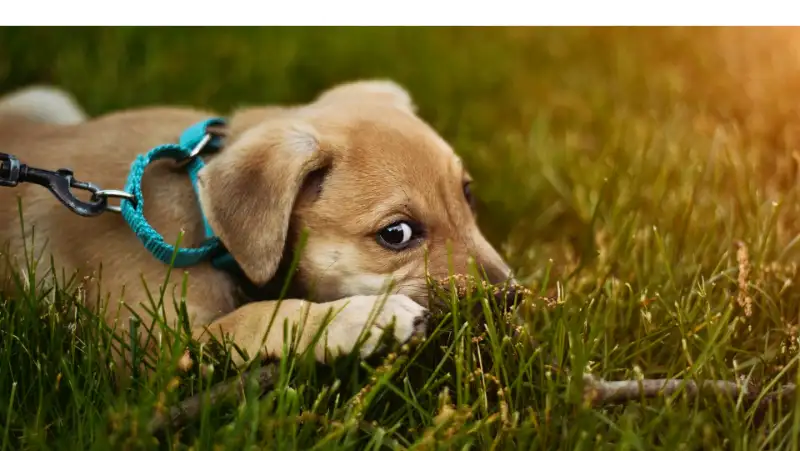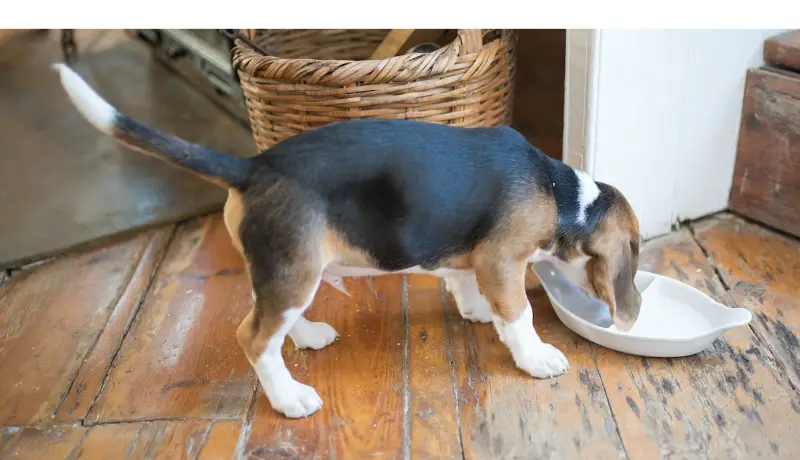You might be wondering why do Labradors lick so much?
Well, these lovable dogs have a special place in our hearts, and their affectionate nature knows no bounds.
Labradors are known for their friendly demeanor, and they express their love through licking.
Are labs known for licking? You bet they are! But don’t worry; we’ll explore the reasons behind this behavior and even address the question, how do I get my lab to stop licking?
So, let’s dive into the wonderful world of Labradors and their penchant for licking.
Fun Fact #1: Labradors are the most popular breed in the United States, UK, and Canada for good reason - their friendly and outgoing nature makes them excellent companions.
The Science Behind Licking
Licking is a natural behavior for dogs, and Labradors are no exception. Let’s dig a little deeper into the scientific reasons behind this instinctive behavior:
- Natural instincts and evolutionary reasons: In the wild, mother dogs would lick their puppies to clean them, stimulate their breathing, and encourage them to eliminate waste. Puppies, in turn, lick their mother’s face as a sign of submission and to request food. This ancestral behavior still exists in our domesticated Labradors today.
- The role of taste buds: Just like humans, dogs have taste buds that help them identify and enjoy different flavors. Licking allows them to explore and taste their surroundings, which can be especially enticing if they come across something delicious.
Fun Fact #2: Did you know that dogs have around 1,700 taste buds, while humans have about 9,000? That's quite a difference!
Affection and Bonding
Labradors have a reputation for being affectionate and loving companions. Licking is just one of the ways they express their love and strengthen their bond with their humans:
- Licking as a sign of love: When your Labrador licks you, it’s like they’re giving you a big, wet kiss! They’re saying, “I love you,” in their own unique way. This behavior is a sign of trust and attachment, and it helps to create a strong bond between you and your furry friend.
- Strengthening the bond with their humans: Licking releases feel-good chemicals called endorphins in your dog’s brain, which helps them to feel relaxed and happy. This positive reinforcement encourages your Labrador to continue licking as they associate the act with the pleasant feelings they experience.
Soothing and Self-Grooming
Licking isn’t just a way for Labradors to show their love; it also serves practical purposes, such as soothing themselves and maintaining cleanliness:
- Licking as a stress-relief mechanism: Just like humans bite their nails or twirl their hair when they’re anxious, Labradors may lick themselves or objects around them to self-soothe. This behavior helps to calm them down and deal with stress or anxiety.
- Maintaining cleanliness and hygiene: Dogs, including Labradors, use licking to self-groom. They’ll often lick their paws and fur to remove dirt, debris, or even parasites. It’s their way of keeping themselves clean and well-groomed.
Exploring Their Environment
Labradors are curious creatures, and licking is one way they gather information about their surroundings:
- Licking as a way to gather information: Dogs have a powerful sense of smell, and licking can help them pick up scent molecules that provide valuable information about their environment. This behavior allows them to better understand what’s around them.
- The importance of scent: For dogs, scent is a crucial form of communication. By licking various objects, Labradors can detect the scents left behind by other animals, which helps them understand their social environment and the presence of potential friends or foes.
Possible Health Issues
While licking can be normal, excessive licking might indicate an underlying health issue. Here are a couple of possible health-related causes for your Labrador’s constant licking:
- Allergies and skin irritations: Just like humans, dogs can suffer from allergies or skin irritations that cause itching and discomfort. Your Labrador may lick the affected area in an attempt to soothe the itch or irritation.
- Oral discomfort and dental issues: If your Labrador is experiencing tooth pain, gum inflammation, or other oral issues, they may lick excessively to alleviate the discomfort. A thorough dental check-up is essential to rule out any oral health problems.
If you suspect your Labrador’s excessive licking is due to a health issue, consult your veterinarian for a professional assessment and treatment recommendations.
Managing Excessive Licking
If your Labrador’s licking is becoming a bit too much, there are several ways to help manage and reduce this behavior:
- Identifying the cause: Determine if there’s an underlying issue, such as anxiety, boredom, or a health problem, that’s causing the excessive licking. Addressing the root cause is crucial to managing the behavior effectively.
- Tips and tricks to reduce licking: Here are a few ideas to help you discourage excessive licking:
- Offer distractions, like toys or treats, to redirect their attention.
- Encourage alternative activities, such as playing fetch or going for a walk, to keep them engaged and stimulated.
- Use positive reinforcement to reward your Labrador for not licking.
- Consider using a taste deterrent, like a bitter spray, on surfaces they tend to lick (make sure it’s safe for your pet).
Remember, always consult with a professional, like a veterinarian or a certified dog trainer, if you’re unsure how to address your Labrador’s excessive licking.
Conclusion
Embracing your Labrador’s quirks, including their licking tendencies, is part of the joy of owning one of these amazing dogs.
While it’s essential to keep an eye on their well-being and ensure there aren’t any underlying health issues causing excessive licking, remember that some degree of licking is natural and normal.
Understanding the reasons behind their licking behavior and taking appropriate steps to manage it can ensure a happy and healthy life for your beloved Labrador companion.










